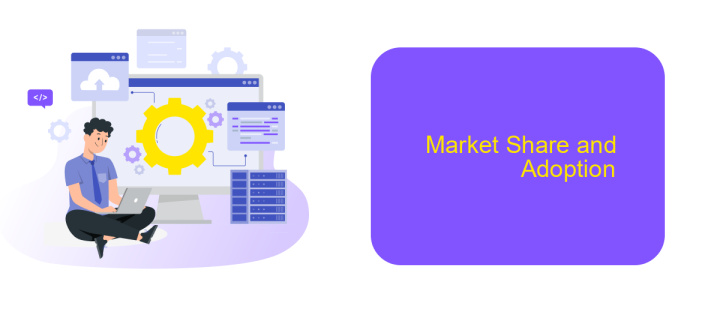Jms Vs Tibco
When it comes to enterprise messaging systems, JMS (Java Message Service) and TIBCO are two of the most prominent names in the industry. Both offer robust solutions for message-oriented middleware, but they cater to different needs and use cases. This article aims to compare JMS and TIBCO, highlighting their features, advantages, and potential drawbacks to help you make an informed decision.
Introduction
In the ever-evolving landscape of enterprise messaging systems, JMS (Java Message Service) and TIBCO (The Information Bus Company) have emerged as two prominent solutions. Both technologies facilitate seamless communication and data exchange between distributed applications, yet they differ significantly in terms of architecture, functionality, and use cases.
- JMS is a Java-based API that provides a common way for Java programs to create, send, receive, and read messages.
- TIBCO offers a comprehensive suite of tools for enterprise integration, including messaging, event processing, and analytics.
- JMS is often preferred for Java-centric environments, while TIBCO is renowned for its robust, scalable solutions across multiple platforms.
Understanding the key differences between JMS and TIBCO can help organizations make informed decisions about which technology to adopt. Additionally, integration services like ApiX-Drive can further simplify the process by providing a user-friendly platform to connect various applications and automate workflows, ensuring efficient and streamlined operations.
Core Features

JMS (Java Message Service) and TIBCO are both robust messaging solutions designed to facilitate communication between different components of a distributed application. JMS is a Java-based API that enables the creation, sending, receiving, and reading of messages, making it highly adaptable for Java applications. Its core features include support for both point-to-point and publish/subscribe messaging models, ensuring flexibility in message delivery. Additionally, JMS provides reliable messaging through its support for transactions and durable subscriptions, making it suitable for applications requiring high levels of reliability and consistency.
On the other hand, TIBCO offers a comprehensive suite of integration and messaging tools, with TIBCO EMS (Enterprise Message Service) being a prominent component. TIBCO EMS supports multiple messaging protocols and provides advanced features such as load balancing, fault tolerance, and high availability. For businesses looking to streamline their integration processes, services like ApiX-Drive can be invaluable. ApiX-Drive enables seamless integration between various applications and services, simplifying the setup and management of complex workflows. This can significantly enhance the efficiency and reliability of both JMS and TIBCO-based systems.
Performance Comparison

When comparing the performance of JMS and TIBCO, several factors come into play, including message throughput, latency, and resource utilization. Both technologies offer robust solutions for messaging, but their performance characteristics can differ significantly depending on the use case.
- Message Throughput: TIBCO is generally known for higher message throughput compared to JMS, especially in high-volume environments.
- Latency: JMS may exhibit higher latency than TIBCO, particularly in scenarios requiring real-time processing.
- Resource Utilization: TIBCO often demonstrates more efficient resource utilization, reducing overhead and improving overall system performance.
In addition to these factors, the integration capabilities of both platforms can also influence performance outcomes. Tools like ApiX-Drive can be instrumental in optimizing integrations and ensuring seamless communication between systems. By automating data transfer and reducing manual intervention, ApiX-Drive helps maintain high performance levels across different messaging platforms.
Market Share and Adoption

When comparing the market share and adoption of JMS and TIBCO, it's essential to consider their presence in various industries. JMS, being an open standard, is widely adopted across different sectors, especially where interoperability and flexibility are paramount. TIBCO, on the other hand, is known for its robust integration capabilities and is often preferred in financial services, healthcare, and telecommunications.
The adoption of these technologies also depends on specific business needs and existing infrastructure. JMS is favored by organizations that require a vendor-neutral approach and the ability to integrate with multiple systems seamlessly. TIBCO's comprehensive suite of tools makes it an attractive option for enterprises looking for a complete integration solution.
- JMS: Widely adopted in sectors requiring open standards and flexibility.
- TIBCO: Preferred in industries like finance, healthcare, and telecom for robust integration.
- ApiX-Drive: Facilitates easy integration and automation, supporting both JMS and TIBCO ecosystems.
In conclusion, the choice between JMS and TIBCO often comes down to specific use cases and organizational requirements. Tools like ApiX-Drive can further streamline integration processes, making it easier for businesses to adopt and leverage these technologies effectively.
Conclusion
In conclusion, both JMS and TIBCO offer robust solutions for messaging and integration needs, each with its unique strengths and capabilities. JMS provides a standardized approach that ensures compatibility and interoperability across different platforms, making it an excellent choice for organizations seeking a versatile and widely-supported messaging solution. On the other hand, TIBCO's suite of tools delivers high performance, scalability, and a comprehensive set of features tailored for enterprise-level applications, making it ideal for complex and large-scale integration projects.
When deciding between JMS and TIBCO, it is crucial to consider the specific requirements of your project, including performance, scalability, and ease of integration. Tools like ApiX-Drive can further simplify the integration process by providing seamless connectivity between various applications and services, enhancing the overall efficiency and effectiveness of your integration strategy. Ultimately, the choice between JMS and TIBCO should be guided by your organization's unique needs and the specific goals of your integration efforts.
- Automate the work of an online store or landing
- Empower through integration
- Don't spend money on programmers and integrators
- Save time by automating routine tasks
FAQ
What is the main difference between JMS and TIBCO?
Can TIBCO EMS be used as a JMS provider?
How do JMS and TIBCO handle message persistence?
Is it possible to integrate JMS and TIBCO with other applications easily?
Which is better for high-volume messaging: JMS or TIBCO?
Apix-Drive is a simple and efficient system connector that will help you automate routine tasks and optimize business processes. You can save time and money, direct these resources to more important purposes. Test ApiX-Drive and make sure that this tool will relieve your employees and after 5 minutes of settings your business will start working faster.


